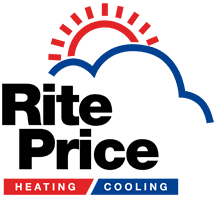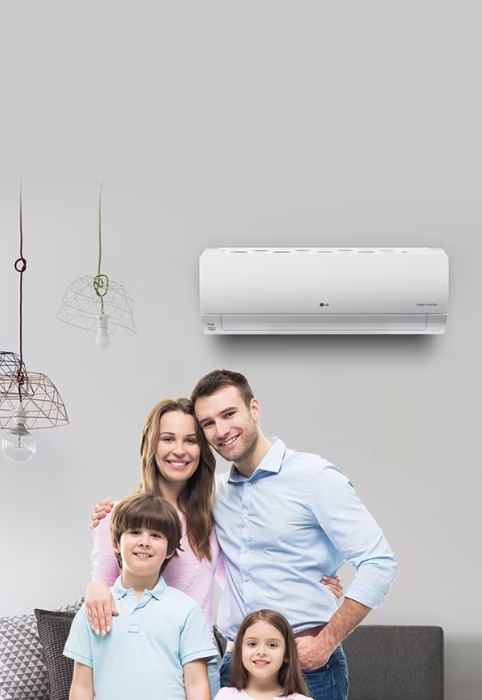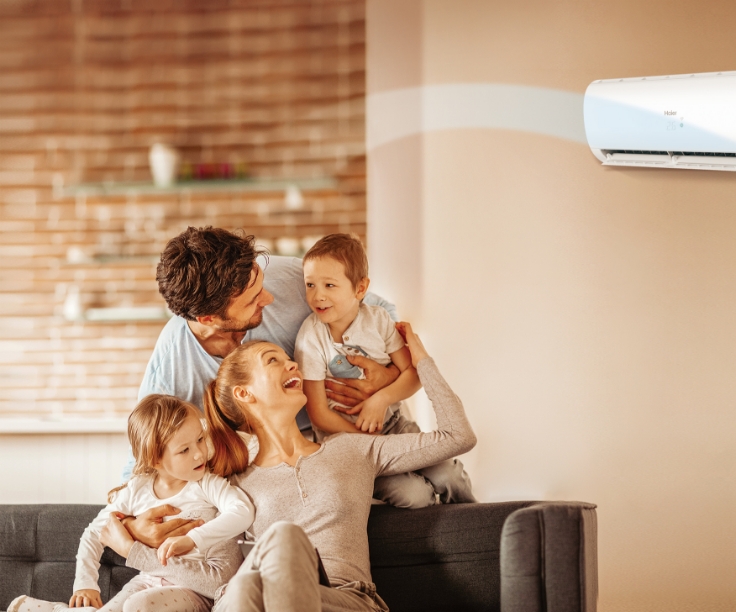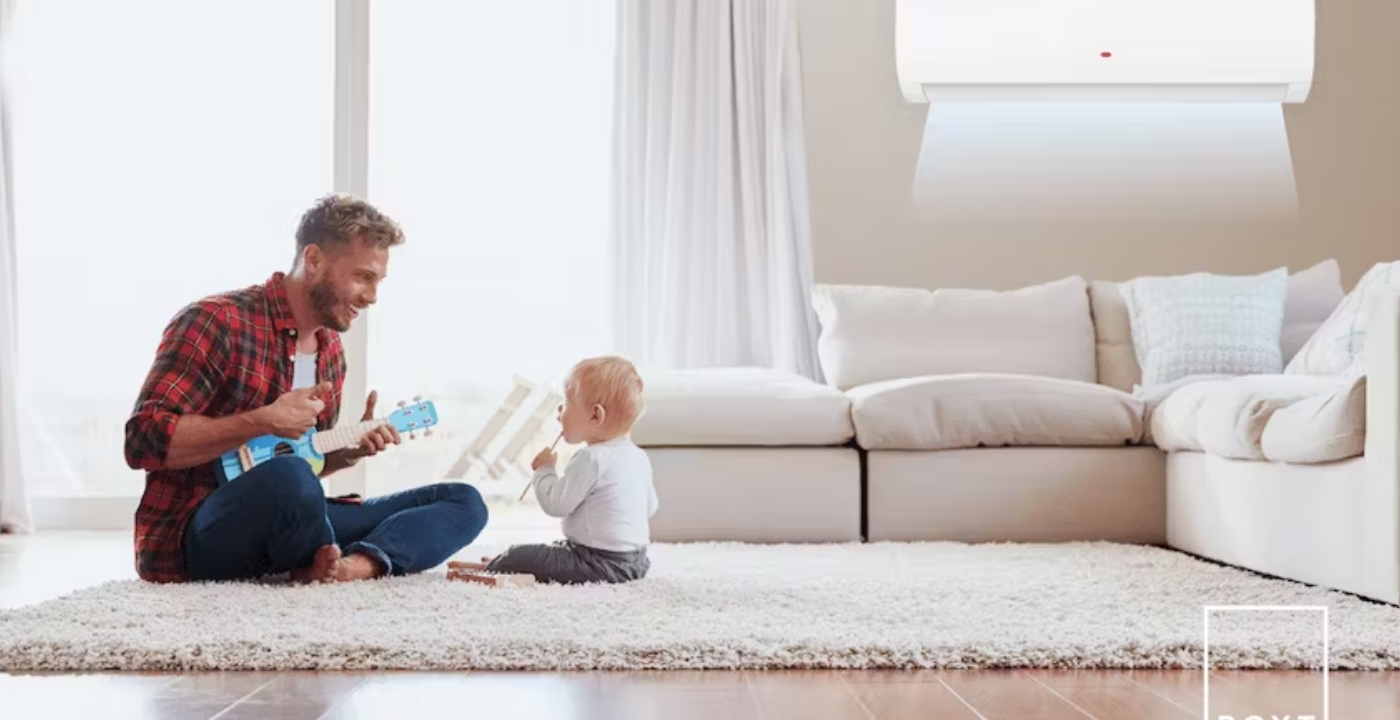Which Air Conditioner Is the Perfect Fit for the Heat of Your Lifestyle?
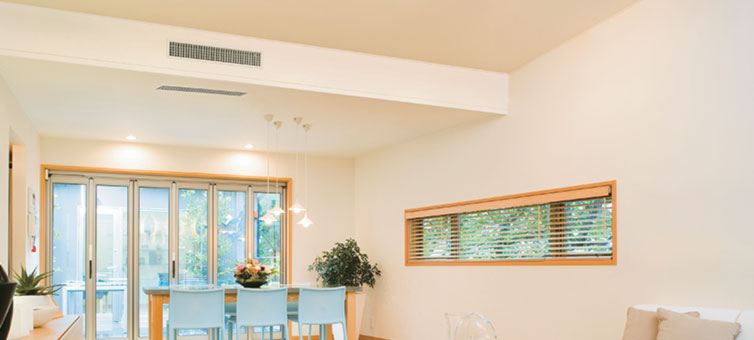
The Right Unit for the Right Space
While a window or wall mounted box will be enough to cool a single room, you’ll want to consider your options to cool multiple rooms. A multi-split system could be ideal for cooling three or four rooms in the same vicinity, but you may want to look at a ducted system if you need to cool a whole house. These kinds of systems may have a more complicated installation process, but it will pay off in the long run to have the most efficient system for your situation. You’ll also need to think about the size of the rooms you’re cooling since the cooling capacity of different units can vary quite a bit. A unit with lower capacity will wear itself out quickly if you put it in a large, sunny room, while it can be a waste of energy to install a high capacity system in a relatively small and shaded space.
Energy Efficiency Will Keep Your Costs Down
Keeping energy bills low and environmental impact to a minimum is becoming increasingly important to consumers, so manufacturers are placing a design emphasis on energy efficiency in their air conditioners. Units that use an inverter system are especially easy on energy consumption, with up to 30% lower rates than other technologies. While more efficient models can be a little more expensive, they can easily pay for the difference and more by having a lower impact on your energy bill. A great trick is to have some solar panels installed to help power your air conditioner. This puts the sun to work on cooling your house instead of just heating it up, and keeps your electricity bill as low as possible.
Choose the Features that Will Make Your Life Easy
There are plenty of features to choose from to make your new air conditioner match your lifestyle. Depending on your needs you may want a unit that comes with a remote control or timer to make output adjustment easier. Some units perform double duty, also acting as a dehumidifier, which can be essential if you deal with a lot of humidity, while others can also switch to heating mode for those cold nights. Mosquito traps can not only remove pests from your home, but also keep them from clogging up the components of the air conditioner. A model with an air filter will improve the air quality by removing germs, smoke and odours.
As you can see, there’s no need to be overwhelmed by the many options available for air conditioners. It can seem like there are too many choices, but if you keep in mind these basic considerations and focus on what you need out of your purchase, you’re sure to pick a model that suits you. Whatever type of lifestyle you lead, there’s an air conditioner out there for you.
Summer is often the season that is most welcomed by locals and tourists alike, especially with the excitement of summer holidays in the air from the local children. This isn’t always the case, however, when scorching temperatures impose on the comfort of the season. The summer in Australia sometimes seems endless, and the soaring temperatures pose an increased risk for both the young and the elderly. So keep the house cool in summer and take action to ensure that your home is well-equipped to guard against the potential health risks of Australia’s summer heat wave.
Australia’s Heat Wave Warnings
Over the past several months, Australia has seen rising temperatures and an early heat wave. With bushfires pushing emergency teams to the limit, and soaring temperatures breaking previous records across Australia, residents are beginning to understand the necessity of climate-controlled indoor spaces this summer and a good air conditioner. The heat, as much as it is adored at times, can also pose serious risks and delays in daily life. Droughts persist to trouble the environment across Southern Australia, and it seems that temperatures are expected to continue to rise in the future. Train stations and public transit have had to stop service at times, and the heat also halted tennis matches at the Australia Open. Most importantly, the heat wave has been connected with a significant increase in deaths. As the temperature rises, so do the cases of heat exhaustion.
Symptoms of Heat Stress
When the heat wave hits, it is important for each person to pay special attention to their health and how they are feeling. If you have elderly relatives or children in your family, you should ensure that you take responsibility for monitoring their health as well.
A common health consequence of the increasing heat is heat exhaustion and heat stoke, which can lead to an increased chance of cardiac arrest, dehydration, and fainting. Outcomes of heat stress also include heat rash and painful heat cramps that can affect muscles throughout the body. Other symptoms that your body is under heat stress include signs such as excessive sweating, lack of energy, fatigue, loss of appetite, nausea, headaches, muscle spasms, and moist, cool skin.
When monitoring elderly relatives or children, you should ask if any of these symptoms are present, since they may go unnoticed or disregarded otherwise. When caring for older people, signs of dehydration include darker urine and less frequent trips to the toilet. Dizziness and confusion are other signs to watch for that can reflect heat exhaustion.
Treating Heat Stress and Heat Exhaustion
If you find that symptoms are present in your loved ones or yourself, ensure that you get to a cool environment as soon as possible. Seek out an air-conditioned room, and lie down with legs slightly elevated. Having a cool shower or bath can assist in lowering body temperatures. Ensure that you and your loved ones are drinking plenty of water. If your body temperature is above 40°C, this could be a sign of heat stroke, in which case water should not be given and medical attention should be sought out as soon as possible.
Having a cool home as a haven when the heat spells hit is certainly a blessing you won’t quite appreciate until it’s not there. Taking action to ensure that your health and the health of your family are protected during the hot summers is certainly well worth the effort. Don’t waste any more time—get an air conditioner sooner rather than later.
